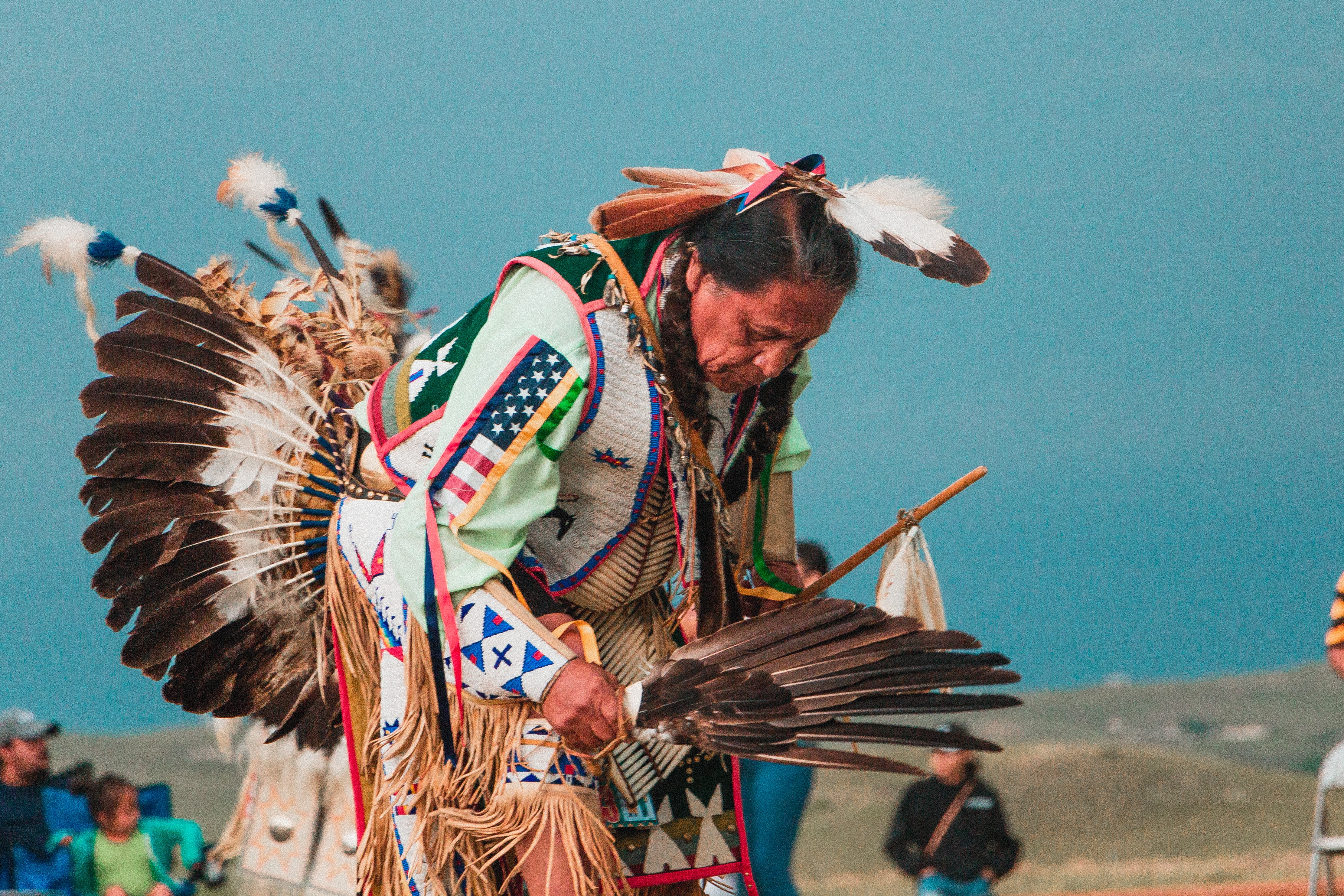
- Details
- By Rafael Tapia Jr.
Imagine more than 550,000 Americans dying in the past year due to Covid-19. Imagine the heartache, fear, trauma and devastation this has produced. Imagine all the relatives, friends and citizens no longer with us or here to care for their loved ones, provide for their families or serve their communities. Imagine the deep void this has left and the level of grieving formerly unknown in our lifetime. Now, consider this happening in communities that are already facing water scarcity, poverty and low food security. Unfortunately, this is the reality for many people who are living in Indian Country and not only have to fight for social equity but now grapple with the effects of a disease that has taken the lives of so many valuable members of their communities: the Elders.
Covid-19’s death toll for Native Americans is staggering. Nationwide, one in every 475 Native Americans has died from Covid-19 since the start of the pandemic, compared with one in every 825 white Americans and one in every 645 Black Americans, according to analysis by APM Research Lab. Native Americans have suffered 211 deaths per 100,000 people, compared with 121 white Americans per 100,000. Communities in Mississippi, New Mexico, Arizona, Montana, Wyoming and the Dakotas have been hit hardest. And the true Native death toll is likely to be higher, as Native data is often patchy or non-existent in federal, state and local reports. My own Tribe, the Pascua Yaqui in Southern Arizona, has lost approximately 10 percent of our citizens to the virus.
This setback is even more exacerbated when you consider the significant impact of losing Native American Elders. Ancestral knowledge within our communities is often passed on through our Elders in the form of oral traditions, mentoring and sharing of life experiences. Elders transfer our cultural knowledge to the younger generations. Yet every day, Covid-19 is taking our Elders at higher rates than ever – and with them ancestral knowledge we may never regain.
Tribal communities have had to cancel traditional ceremonies that we’ve held for hundreds of years to protect those who are at risk. People in my land are grieving not only the loss of Elders but the loss of these beautiful customs as well. Many times, the people who are left to fill the shoes of our Elders are not ready for that role and haven’t learned the details that can only come with time and mentorship.
The Pascua Yaqui Tribe, for example, has ceremonial celebrations for life and death. Our death ceremonies celebrate the passage to the next journey, a return to the life source from which we all come, and a destiny we are all born with and should embrace as part of life. Still, it’s heartbreaking that so many Elders are dying prematurely from Covid-19 and taking with them their precious ancestral knowledge.
The odds were stacked against Native Americans long before Covid-19 brought its devastation to our communities. Throughout history, there have been several instances where our culture was threatened and dismantled by Western colonization. And once again, many Native Americans feel they are under threat of being wiped out.
Today, 23 percent of Native families are food insecure, and 40 percent of reservation housing is considered substandard, with several generations living under one roof in smaller, overcrowded homes. Native Americans also face a disproportionate rate of chronic health issues, including the highest rate of diabetes in the world, along with inadequate health care.
The conditions that make Indigenous people more vulnerable were established decades before the pandemic reached our shores. Native Americans are seen as the poorest, the sickest and the lowest in educational attainment in America. We may well soon be completely extinct, just like other tribes that once prospered on this continent.
However, it is in our nature to look for the light: we will not be repressed or oppressed. The sky could be falling and we, as a people, will still find that sliver of hope. Let Covid-19 serve as a wake-up call for Native peoples, as a reminder of the importance of our Elders and preserving our culture for the generations to come. Let us not be lulled into complacency by poverty, sickness and the myriad distractions of the outside world. Let us rise together and fight this virus by holding on to what we have, what we believe in and what we must do to preserve our ways. We as Native peoples have been here before and we will continue to find reasons to celebrate life, and death.
Rafael Tapia Jr. is Vice President of Programs at Partnership With Native Americans. Rafael holds an MBA from the Eller College of Management at the University of Arizona, as well as an Economic Development Certificate from the Oklahoma University College of Continuing Education. Rafael is an enrolled member of the Pascua Yaqui Tribe in Arizona.
Help us defend tribal sovereignty.
At Native News Online, our mission is rooted in telling the stories that strengthen sovereignty and uplift Indigenous voices — not just at year’s end, but every single day.
Because of your generosity last year, we were able to keep our reporters on the ground in tribal communities, at national gatherings and in the halls of Congress — covering the issues that matter most to Indian Country: sovereignty, culture, education, health and economic opportunity.
That support sustained us through a tough year in 2025. Now, as we look to the year ahead, we need your help right now to ensure warrior journalism remains strong — reporting that defends tribal sovereignty, amplifies Native truth, and holds power accountable.
 The stakes couldn't be higher. Your support keeps Native voices heard, Native stories told and Native sovereignty defended.
The stakes couldn't be higher. Your support keeps Native voices heard, Native stories told and Native sovereignty defended.
Stand with Warrior Journalism today.
Levi Rickert (Potawatomi), Editor & Publisher
